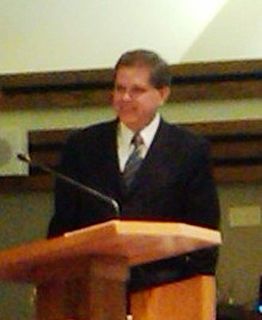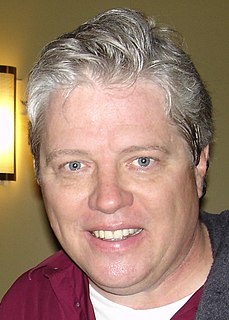A Quote by Ambrose Bierce
PLENIPOTENTIARY, adj. Having full power. A Minister Plenipotentiary is a diplomatist possessing absolute authority on condition that he never exert it.
Related Quotes
If it be admitted that a man, possessing absolute power, may misuse that power by wronging his adversaries, why should a majority not be liable to the same reproach? Men are not apt to change their character by agglomeration; nor does their patience in the presence of obstacles increase with the consciousness of their strength. And for these reasons I can never willingly invest any number of my fellow creatures with that unlimited authority which I should refuse to any one of them.
Advertisements are of great use to the vulgar. First of all, as they are instruments of ambition. A man that is by no means big enough for the Gazette, may easily creep into the advertisements; by which means we often see an apothecary in the same paper of news with a plenipotentiary, or a running footman with an ambassador.
You received the power, the authority, and the sacred duty to minister the moment you were ordained to the priesthood. President James E. Faust taught, “Priesthood is the authority delegated to man to minister in the name of God. “The Aaronic Priesthood holds the keys of the ministering of angels.
As you love His children, Heavenly Father will guide you, and angels will assist you. You will be given power to bless lives and rescue souls.
There are similarities between absolute power and absolute faith: a demand for absolute obedience, a readiness to attempt the impossible, a bias for simple solutionsto cut the knot rather than unravel it, the viewing of compromise as surrender. Both absolute power and absolute faith are instruments of dehumanization. Hence, absolute faith corrupts as absolutely as absolute power.
Above this race of men stands an immense and tutelary power, which takes upon itself alone to secure their gratifications, and to watch over their fate. That power is absolute, minute, regular, provident, and mild. It would be like the authority of a parent, if, like that authority, its object was to prepare them for manhood; but it seeks, on the contrary, to keep them in perpetual childhood.
Nothing discloses real character like the use of power. It is easy for the weak to be gentle. Most people can bear adversity. But if you wish to know what a man really is, give him power. This is the supreme test. It is the glory of Lincoln that, having almost absolute power, he never abused it, except upon the side of mercy.
There is a great difference, then, between "power" and "authority." Power refers to one's ability to coerce others (through physical, economic, or other means) to do one's bidding. One can possess the means of power: physical strength, armaments, and money. But authority must be performed. Authority refers to one's ability to gain the trust and willing obedience of others. While power rests on intimidation, authority survives through inspiration.
Ordinarily, even when people become religious, they go on thinking in terms of having - possessing heaven or possessing the pleasures of heaven - but still they go on thinking in terms of having. Their heaven is nothing but their projected desire of having everything. All that they have missed here they would like to have in the after-life. But it is the same desire.
What is the cause of historical events? Power. What is power? Power is the sum total of wills transferred to one person. On what condition are the willso fo the masses transferred to one person? On condition that the person express the will of the whole people. That is, power is power. That is, power is a word the meaning of which we do not understand.
In a culture of technique, we often confuse authority with power, but the two are not the same. Power works from the outside in, but authority works from the inside out. . . . I am painfully aware of the times in my own teaching when I lose touch with my inner teacher and therefore with my own authority. In those times I try to gain power by barricading myself behind the podium and my status while wielding the threat of grades. . . . Authority comes as I reclaim my identity and integrity, remembering my selfhood and my sense of vocation.
































